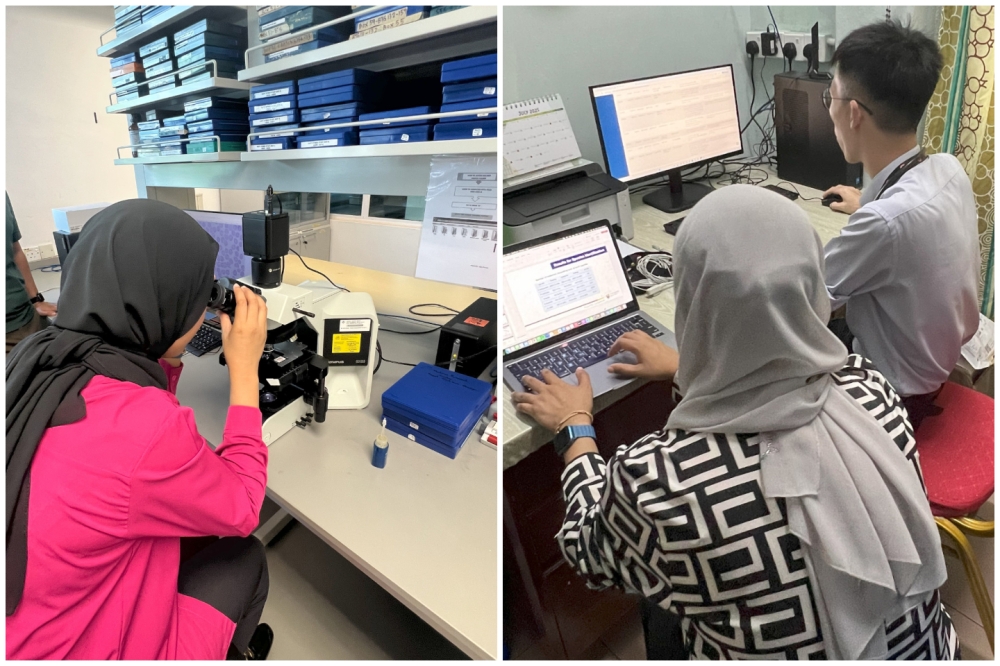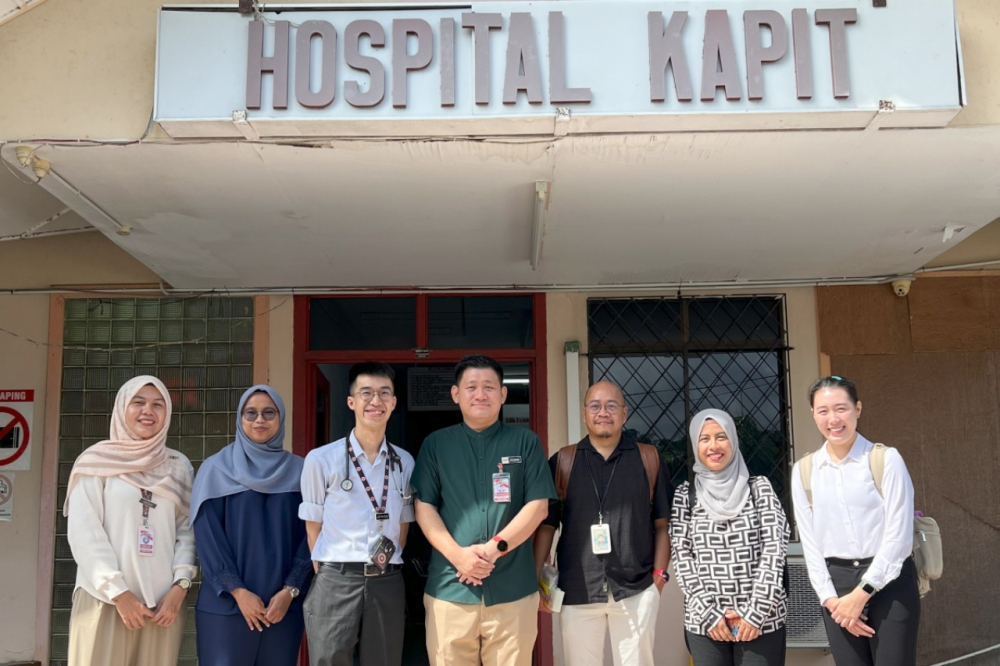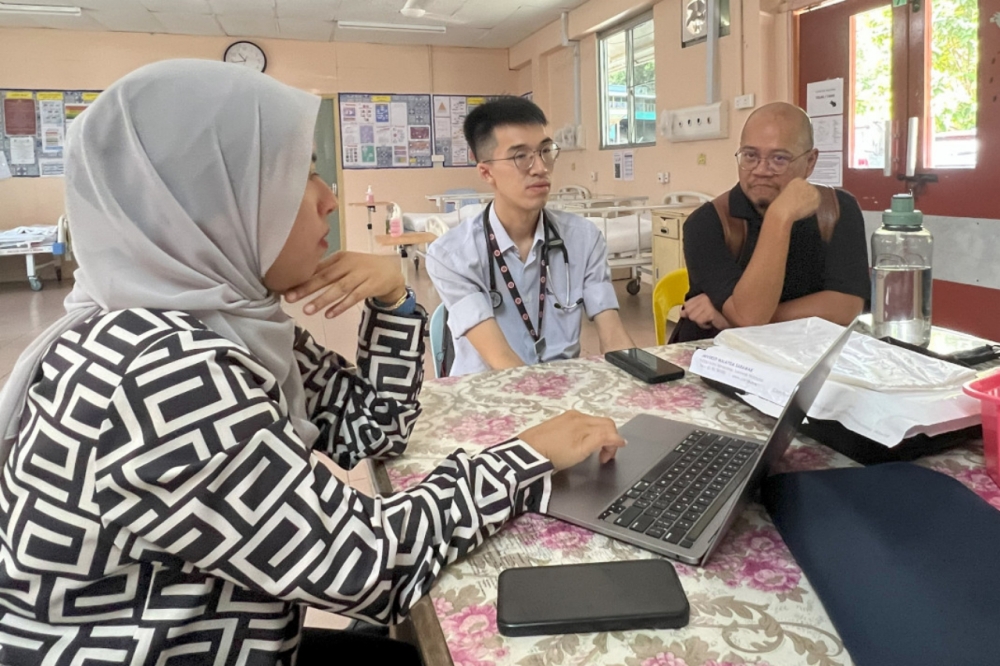KAPIT, Aug 24 — In a modest side room at Kapit Hospital, Sarawak, a quiet revolution is unfolding. It’s not the kind that makes headlines or starts global trends but the kind that saves lives, one pixel at a time.
Here, away from the bustle of city hospitals, staff prepare blood slides the old-fashioned way — a drop of blood, a smear, and a slide carefully packed for delivery to a lab hundreds of kilometres away in Kuching. But what happens next is where the future begins.
At Universiti Malaysia Sarawak (Unimas), those same slides are digitised, processed, and analysed using a homegrown AI tool developed by a team at Universiti Malaya (UM). The system, called MalariaCare+, is already showing promise in detecting human malaria with greater accuracy and speed than ever before.
“This isn’t artificial intelligence for the sake of it,” project lead Associate Prof Khairunnisa Hasikin said. “This is applied intelligence; built with and for the people who deal with malaria on the ground.”
A shape-shifting enemy
Plasmodium knowlesi, a zoonotic strain of malaria once confined to macaques, is now the leading cause of human malaria in Malaysia, particularly in Sabah and Sarawak. Its resemblance to other Plasmodium species under a microscope, coupled with a rapid 24-hour replication cycle, makes timely and accurate diagnosis both urgent and difficult.
In rural clinics, where trained parasitologists are few and diagnostic tools are basic, misidentification is common. Existing AI-based tools for malaria do exist, but many are either too generic, too complex, or trained on species common in other regions, not on local cases.
That gap is what drove the team at UM to develop MalariaCare+: a mobile-compatible, AI-powered diagnostic assistant for malaria, specifically tailored to Malaysian realities.

MalariaCare+ is a mobile-compatible, AI-powered diagnostic assistant for malaria, specifically tailored to Malaysian realities. — Picture courtesy of Universiti Malaya
Building the engine first
With support from the AI for Medicine Research Grant Scheme 2025, the team focused first on the foundation: getting the AI to see clearly.
Their main achievement so far is the validation of a graph-enhanced YOLO model — a deep learning engine that can detect malaria-infected red blood cells, even in densely overlapping regions. Most image analysis systems struggle here, especially with low-quality slides from remote regions.
“We trained the AI to see what even the sharpest eyes might miss,” Khairunnisa said. “It’s not about replacing doctors and clinicians. It’s about giving them a second set of expert eyes when they need it most.”
This AI model has already been integrated into a working app for human malaria detection — currently being tested using real blood smears sourced from Sarawak, including those from Kapit Hospital, and processed at Unimas.
A collaboration across campuses and clinics
While Kapit Hospital doesn’t have an advanced diagnostic lab, it plays a crucial role in the pipeline: collecting patient samples and forwarding them to Unimas for staining, digitisation, and analysis. This partnership between UM, Unimas, and frontline clinical settings is what makes the project not only functional, but highly timely.
“We didn’t build this in a vacuum,” Khairunnisa noted. “It was shaped by conversations with doctors, technicians, and field researchers who understand what the gaps really are.”
The next phase, which is still in development, is the creation of a stage-specific classifier for Plasmodium knowlesi. This deep learning AI model will eventually help clinicians understand not just if a patient has malaria, but what stage the parasite is in; very crucial for faster, personalised treatment.
This will be embedded into an upgraded version of MalariaCare+ alongside features like real-time inference, visual explainability, and longitudinal patient tracking. The team is also working on making the app more field-ready: able to connect with smartphone-linked microscopes, store patient history securely, and operate with limited internet.
Discussions are also underway to include MalariaCare+ in training modules at Unimas and UM, helping students understand not just the biology of malaria, but also the power of technology in public health.
“This is about digital equity,” Khairunnisa said. “AI tools shouldn’t be reserved for high-income hospitals. They should work for anyone, anywhere — especially in the places where they’re needed the most.”

Assoc Prof Khairunnisa Hasikin (second right) with the Kapit Hospital team, including its director Dr Francis Lee (third from left). — Picture courtesy of Universiti Malaya
A Malaysian model for global problems
While most medical AI tools are still focused on diseases like cancer in high-income countries, MalariaCare+ offers something rare: an interpretable AI system designed for neglected tropical diseases, in low-resource settings, by people who understand both.
This work clearly supports Malaysia’s malaria elimination roadmap. But its real potential lies in how it could inspire cross-border adoption and collaboration throughout Southeast Asia and beyond.
Back in Kapit Hospital, another slide is carefully prepared, labelled, and placed into a box for its long journey to the lab. It’s a small act — but now, that slide has a powerful partner waiting on the other end.
* This article was contributed by Ir Dr Nahrizul Adib Kadri, a professor of biomedical engineering at the Faculty of Engineering, and the Principal of Ibnu Sina Residential College, Universiti Malaya. He may be reached at [email protected]
** For more information about MalariaCare+, please contact Associate Professor Dr Khairunnisa Hasikin at [email protected]






